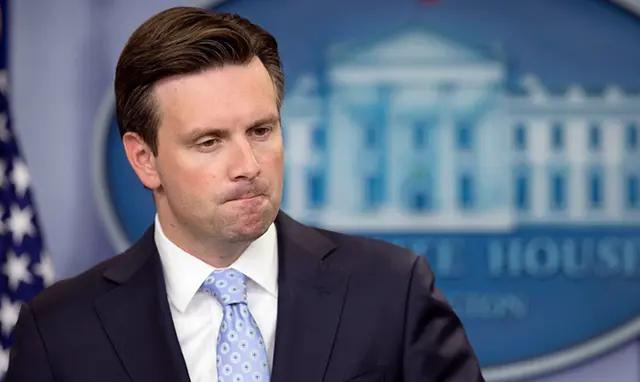The White House said on Monday it had sought to reassure China after President-elect Donald Trump's phone call with Taiwan's leader last week, which the Obama administration warned could undermine progress in relations with Beijing.
The statement from a spokesman for U.S. President Barack Obama highlighted concerns about the potential fallout from Trump's unusual call with Taiwan's leader Tsai Ing-wen on Friday, which prompted a diplomatic protest from Beijing on Saturday.
White House spokesman Josh Earnest said senior National Security Council officials spoke twice with Chinese officials over the weekend to reassure them of Washington's commitment to the "One China" policy and to "reiterate and clarify the continued commitment of the United States to our longstanding China policy."
The policy has been in place for 40 years and is focused on promoting and preserving peace and stability in the strait separating Chinese mainland and Taiwan, which is in U.S. interests, Earnest said.
"If the president-elect's team has a different aim, I'll leave it to them to describe," he said.
"The Chinese government in Beijing placed an enormous priority on this situation, and it’s a sensitive matter. Some of the progress that we have made in our relationship with China could be undermined by this issue flaring up," he said.
The call with Taipei was the first by a U.S. president-elect or president with a Taiwan leader since President Jimmy Carter switched diplomatic recognition to China in 1979, acknowledging Taiwan as part of "one China."
Despite tensions over matters ranging from trade to China's pursuit of territorial claims in the South China Sea, the Obama administration has highlighted cooperation on global issues, such as climate change and Iran's and DPRK's nuclear programs.
Earlier on Monday, China's Foreign Ministry said Trump was clear about China's position on the Taiwan issue and that China had maintained contacts with his team.
Vice President-elect Mike Pence sought to play down the telephone conversation, saying on Sunday it was a "courtesy" call, not intended to show a shift in U.S. policy on China.
Senate Foreign Relations Committee Chairman Bob Corker, who has been mentioned as a possible secretary of state in the Trump administration, said on Monday he thought reaction to the Taiwan call was being overblown.
"He got a call, he took it, and again, he's getting calls from everyone, so I think probably a lot more is being read into it than is the case, really," Corker said.
U.S. Vice President-elect Mike Pence. REUTERS/Lucas Jackson
"Stern Representations"
Chinese Foreign Ministry spokesman Lu Kang would not say directly whom China had lodged "stern representations" with about Trump's call, repeating a weekend statement it had gone to the "relevant side" in the United States.
"The whole world knows about the Chinese government's position on the Taiwan issue. I think President-elect Trump and his team are also clear," Lu told a daily news briefing.
"In fact, China has maintained contacts and communication with the team of President-elect Trump," he added, repeating a previous assertion, although he did not give details.
Lu also said he would not speculate on what prompted the call, but described the matter of Taiwan as the most important and sensitive question between China and the United States.
Former U.S. Secretary of State Henry Kissinger, who was White House national security adviser when President Richard Nixon made his historic visit to China in 1972, told a forum in New York on U.S.-China relations that he had been "very impressed at the calm reaction of the Chinese leadership" to Trump's call.
Kissinger, who met with Trump last month, said it suggested Beijing may be looking to develop a "calm dialogue" with the new U.S. administration.
(REUTERS)
 简体中文
简体中文

